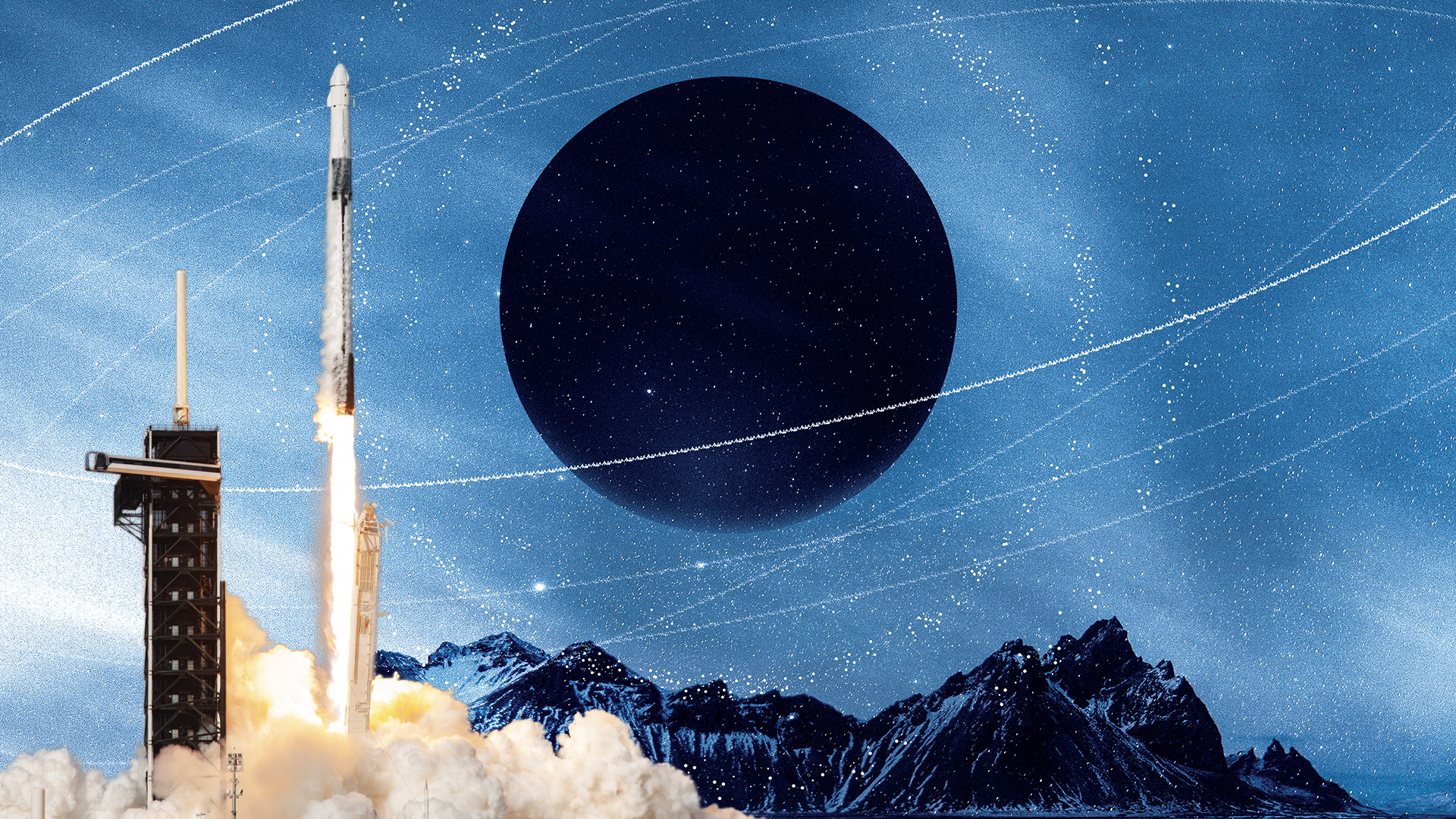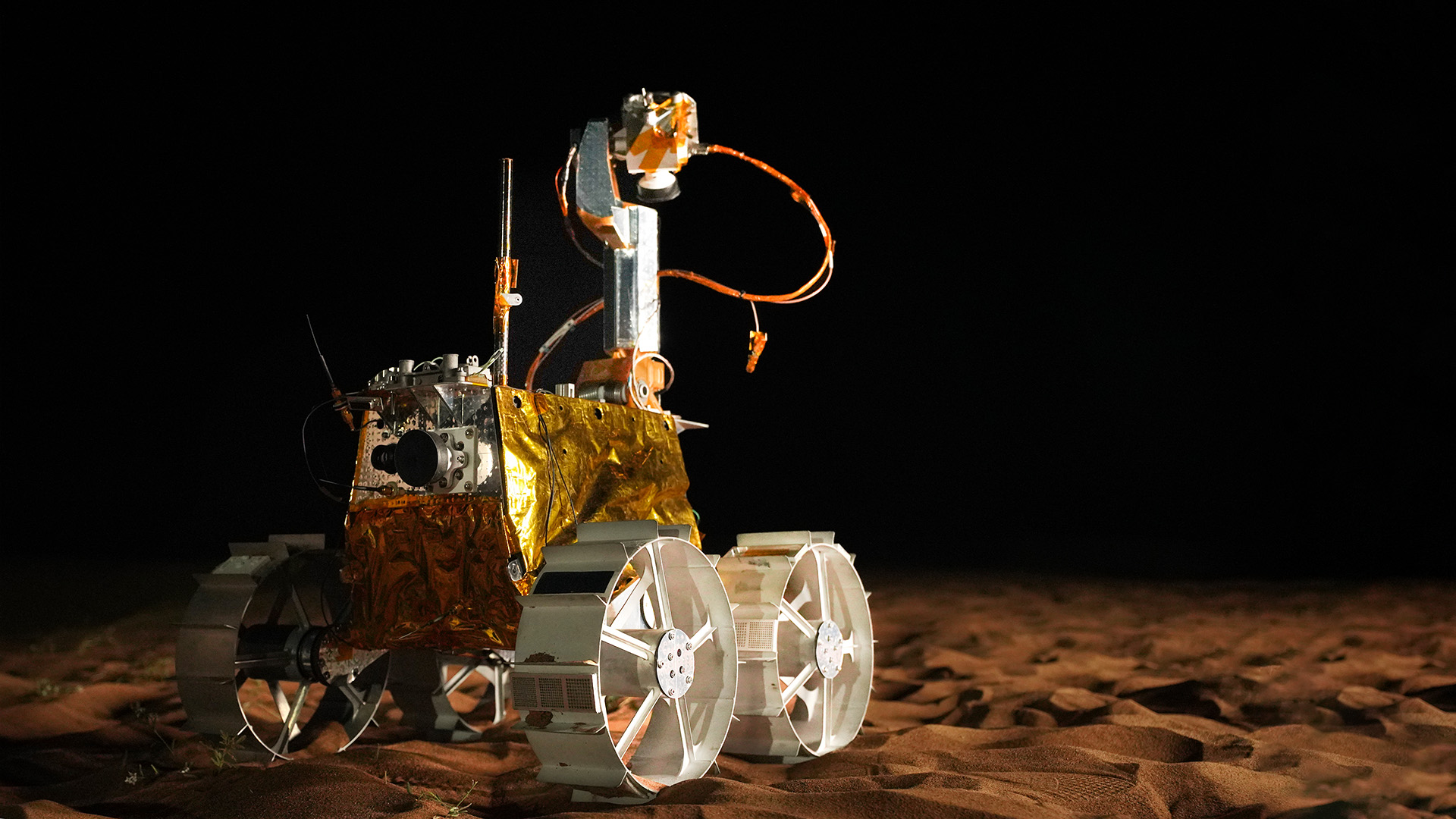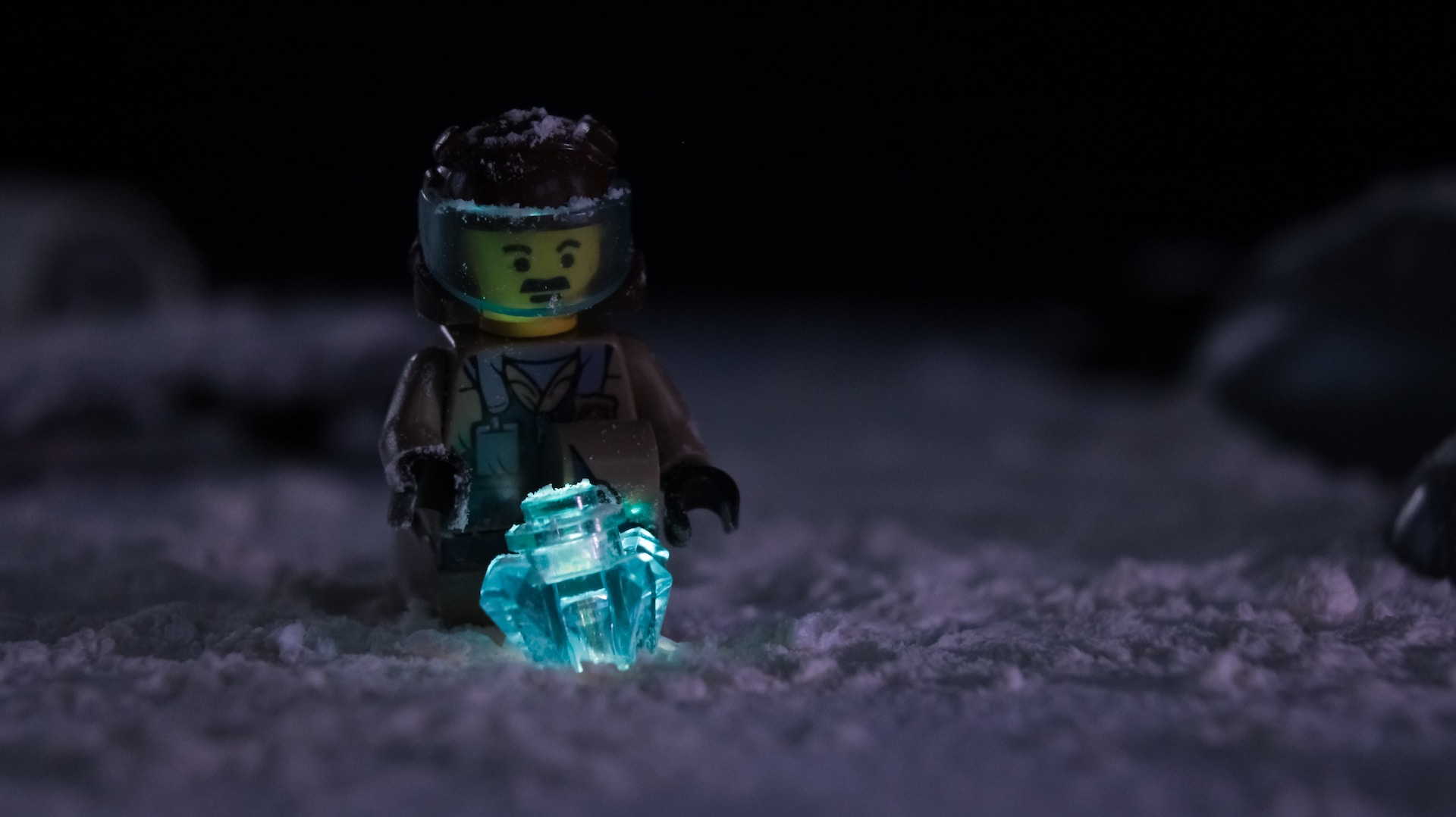Tech could someday let people even in dry climates
get clean water straight from the atmosphere›››
In 2021, the UAE’s Hope probe arrived on Mars, just one of many missions launched by governments and private businesses in recent years looking to increase our understanding of our solar system and beyond. With all of this interest in space exploration, we asked our experts: What should be our first priority? Here’s what they said.
WORKING TOGETHER BENEFITS ALL OF EARTH’S PEOPLE

Hamad Al Marzooqi
Hamad Al Marzooqi was the project manager for the Emirates Lunar Mission and oversaw the computer and the imaging systems of the Rashid rover.
Space exploration has always been human-centric in nature. It has been the case in the past, it is what fuels the current space-exploration program, and it will continue to be in the future.
There were different drivers of space-exploration programs including political, economic and national defense in the past, and they will continue to be.
However, such drivers come and go, and what remains is the curiosity in all of us to explore the unknown and expand our knowledge.
What distinguishes us as humans is our persistence in asking questions from our childhood until adulthood, and such questions are the drivers of all scientific space-exploration programs.
Our ancestors looked at the moon, planets and the stars with awe and inspiration. Today, through our persistence in asking questions, we have become space explorers by sending spacecraft and rovers to the moon, Mars and other planets, eventually reaching the edge of our solar system.
Soon, we will be a space-faring species, and we will create our permanent presence on the moon and Mars.
The “we” in the previous statements is not privileged to a nation, country, political region, ethnicity or religion. It includes all humans living on Planet Earth, and that is what should be the first priority in space exploration.
 CAPTION: The UAE’s Sultan Al-Neyadi looks on as Tom Marshburn signs on for the first day of exams at Star City, Russia. IMAGE: NASA
CAPTION: The UAE’s Sultan Al-Neyadi looks on as Tom Marshburn signs on for the first day of exams at Star City, Russia. IMAGE: NASASpace exploration is a challenging task, and it will not be feasible without working together as one species through international collaboration.
The International Space Station sets an excellent example of what can be achieved by setting our differences aside and working together. We need to take this example further and expand our international-collaboration efforts in future space-exploration programs.
We need to take advantage of the substantial advancements that are being made through different space programs and find solutions that are human-centric to improve the livelihood of humans living on this planet through technologies, knowledge, education and empowerment of underdeveloped and developing nations.
Our international space-exploration program should focus on advancing human knowledge, finding solutions for existing problems (global warming, inequality, poverty and global health system) and providing a brighter future for the next generation on Earth and other planets.
AVOIDING THE FATE OF THE DINOSAURS

Ettore Perozzi
Ettore Perozzi is senior scientist at the Italian Space Agency (ASI) with a long-standing expertise in celestial mechanics, planetary science, space flight dynamics, education and public outreach. Asteroid (10027) bears his name. Read more›››
The long and winding roads that connect the neighborhood of the Earth to the outer regions of the solar system (and beyond) are well known in celestial mechanics. It is also well established that asteroids and comets, often following chaotic orbital paths, are key to understanding the early phases of planetary formation – where we all come from.
Their dynamical mobility – leading to impacting the planets, falling into the sun or escaping to interstellar space – and their diversity in physical properties make them extremely interesting for planetary science as well as threatening objects in case of collision. They also present an opportunity for extraterrestrial mining.
Therefore, exploring asteroids and comets allows us to address at once three fundamental issues: unveiling the origin and evolution of the solar system, opening a potential new market for commercial space applications and providing vital information for civil protection.
Knowing the chemical composition and internal structure of a small celestial body en route to colliding with the Earth would allow us to develop a robust and reliable deflection strategy, thus helping humans avoid the fate of the dinosaurs.
 CAPTION: Knowing more about small celestial bodies could help us deflect them. IMAGE: NASA, Freepik, Shutterstock
CAPTION: Knowing more about small celestial bodies could help us deflect them. IMAGE: NASA, Freepik, ShutterstockWhen the body poses no danger, its pristine composition could provide precious reservoirs of extraterrestrial resources to compensate for the feared lack of key elemental abundances on our planet.
To date many successful space missions (Giotto, NEAR, Dawn, Rosetta, Hayabusa 2, Dart/LICIAcube, to name a few) have reached asteroids and comets. More are to come.
But in addition to the previous points, these celestial bodies represent ideal locations for the in-situ production of fuel and basic consumables, thus enabling routine long-range space exploration and, in the long run, sustaining the much-awaited human expansion in the solar system.
EXPLORING NEAR EARTH ORBITS WILL AFFECT LIFE ON EARTH

Anton B. Ivanov
Anton B. Ivanov is executive director for Beyond Space Exploration at the Technology Innovation Institute in Abu Dhabi, UAE.
We can distinguish two important priorities for the future in space exploration: Near Earth orbits (LEO, MEO and GEO) and study of the solar system.
Safe exploration of near Earth orbits (NEO) is important for a couple of reasons. These orbits are home to Earth observation communication and GNSS satellites. These assets play crucial roles in our everyday life, even though we don’t notice their impact.
In the recent decade, we are seeing a big push toward creating large constellations, which will enable new applications, yet popular orbits will become very congested.
The number of active satellites and debris in orbit is rapidly increasing. This presents a significant safety risk to both human and robotic missions in LEO, and proper measures must be taken to mitigate these risks.
Exploration of the solar system, particularly Mars and the moon, is important for a number of reasons.
 CAPTION: NASA IMAGE: The Jupiter spacecraft captured this image of Jupiter’s swirling clouds. This sort of exploration will continue to help humans understand more about the universe.
CAPTION: NASA IMAGE: The Jupiter spacecraft captured this image of Jupiter’s swirling clouds. This sort of exploration will continue to help humans understand more about the universe.Many governments and private companies are investing in missions to the moon, Mars and asteroid belt. In addition to technology advancement, we learn about the history of the solar system.
In conjunction with the growing number of discovered exoplanets, we can better understand whether life, as we know it, can exist outside the solar system.
Exploration of Mars and the moon can also serve as a stepping stone for human exploration of deeper space and inspire technologies that will find their place here on Earth.
Humanity has a natural curiosity to explore new places. Mars and the moon present great interest for establishing permanent future settlements.
It is unlikely that these settlements will solve problems, such as overpopulation and climate change. However, they will have a positive impact on human culture and society, promoting a sense of wonder and awe, fostering international cooperation and inspiring innovation.




